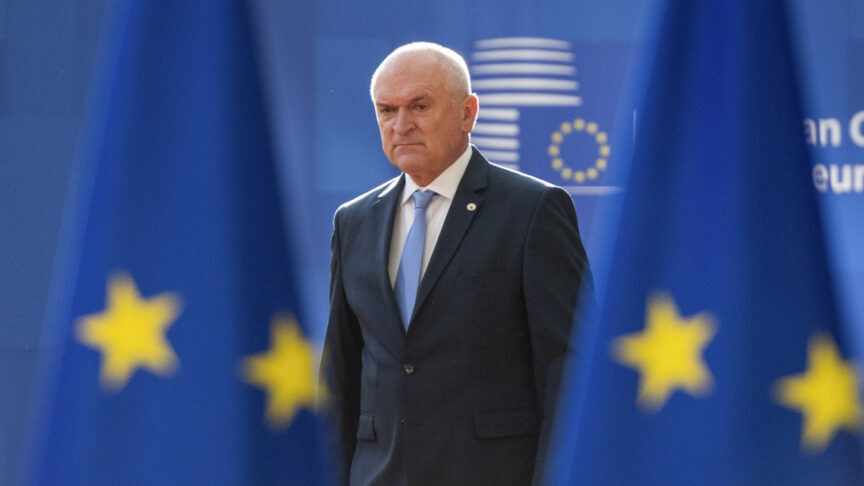France blazes a lonely trail
France did not seem inclined to build coalitions on foreign policy in 2014, preferring to go it alone – which made it less effective as a foreign policy leader.
The visit by François Hollande and Angela Merkel to Kyiv and Moscow this month may not have real hopes of bringing about peace in Crimea, but it did succeed in presenting a visual impression that the Franco-German axis remains a strong driver of Europe’s voice on the world stage. But ECFR’s Foreign Policy Scorecard 2015 suggests that this impression is not borne out by the realities of how the two states contributed to foreign policy in 2014. This year, Germany emerged not only as an economic leader, but also as a political leader across all the regions and many of the themes that the Scorecard covers. With 17 leader rankings, and no slacker ratings, it left the next highest leaders – the United Kingdom and Sweden jointly on 11 – for dust.
France, on the other hand, remains in the top three, but it has fallen from the top of the leader board in 2013 to third place in 2014, leading eight times as compared to last year’s 12. It is ranked as a slacker twice, for foot-dragging on the Transatlantic Trade and Investment Partnership negotiations and for failing to speak out on human rights violations in China. Unlike the UK and Sweden, it did not show leadership by increasing its humanitarian and development aid levels – although its sizeable aid package to Guinea to tackle the outbreak of Ebola was a notable exception, and French-German cooperation in setting up a European evacuation mechanism for international medical personnel was also important.
Rather than trying to create coalitions, French leadership in 2014 was often of the trailblazer variety – for example, on intervention in Central African Republic and against the Islamic State (where its attempts to form an alliance with the United States against Bashar al-Assad failed). Nevertheless, on the development of sanctions against Russia, France did put its weight behind the collective decision, despite the pending delivery of a shipment of Mistral aircraft carriers hanging like a sword of Damocles over the decision, and in the face of major divisions within the French political class on how to handle Russia. Clearly, as does any state, France puts its resources where it sees its own national strategic interest. But it seemed less willing to invest this year in trying to convince others to follow its lead. This was especially the case in Africa. Perhaps being left to carry the can in Mali in 2013 caused France to feel that persuasion was futile, and the European Union’s missed opportunity in 2014 to deploy a military mission of sufficient strength in the Central African Republic – again leaving the heavy lifting to Paris – must have been frustrating. Paris might be forgiven for assuming that there are parts of the world where the EU as a whole does not yet sufficiently understand its security interests and for thinking that French unilateralism is the only option if it perceives a need to act.
The French government’s decision to go it alone in European foreign policy-making is not necessarily viewed as bad news in France. After his surge in popularity following the horrific Charlie Hebdo attacks in Paris in January, Hollande felt surefooted enough to use his speech at the World Economic Forum in Davos to recommit to an activist French foreign policy. But it may be bad news for the EU. Berlin appears not to have put a foot wrong in its leadership on foreign policy-making in 2014, except perhaps in being slow in the first half of the year to accept that Russian aggression could not be countered by diplomatic means. Even so, it is unclear whether, over the long term, a European foreign policy with a distinctly German accent will remain a good thing. Paris’s complementary worldview will also be important in shaping the global strategy that High Representative Federica Mogherini is looking to develop, not least in ensuring that threats and interests to the south are kept on the European radar.
The European Council on Foreign Relations does not take collective positions. ECFR publications only represent the views of their individual authors.


